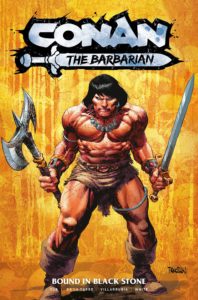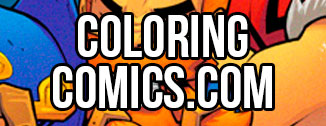Adaptations.
Anything that isn’t a story’s original medium is an adaptation. Even when Sin City is directed by Frank Miller (the guy who wrote and drew the comic) and almost every frame is composed to mirror the comic, it’s still an adaptation. How true something is to the spirit of the original source is where things get murky.
Which brings me to Charlie and the Chocolate Factory.
Visually impressive, in places it’s a dead-on vision of Roald Dahl’s book. The first 15 minutes or so is an almost perfect adaptation, updating the frame of reference ever so slightly without making a nuisance of itself. But then, Willy Wonka shows up in person and something goes horribly wrong. The visuals are still working well but the heart and soul of the movie goes very askew.
Johnny Depp, what the Hell are you doing?!
This isn’t the diminutive and eccentric sagely figure I saw in the original illustrations from the book or imagined moving through my mind. This isn’t even Gene Wilder’s strange legalese-spouting chocolateer from the original movie adaptation. Johnny Depp is just out somewhere – going, going… gone. Where he’s at isn’t somewhere empathetic or entertaining… it’s just creepy, plastic and slightly repulsive. His jerky mannerisms mixed with the grotesque pallor of his skin and a halted voice like some sort of cowardly eunuch left me with an empty hole where there was supposed to be delight. Who thought this was a good idea? It boggles my mind that dailies would come in and no one could take a clear view of this and go “No, there’s something missing – right here – right here dead center where there should be a wonderful character.”
Most of the casting is quite inspired. Charlie’s entire family is fantastic, the kids are pretty sharp and everything else is raring to go. The Oompa Loompas could’ve been done with a little less modern trappings and techno music, but even that wasn’t a boat sinker. All the film needed was a ringmaster to direct the circus. A special Willy Wonka to fill it in and make the whole thing magical. What they got was a jaw-clenching unlikeable twitchy creep with a completely unnecessary sub-plot heaped on to make the whole thing crash under its own weight.
Adaptation can take liberties with the source but it has to be like a nature hike where you “leave no trace of your passing”. Changes should be as seamless as possible, especially when the source material is extremely well known. Taking Tom Bombadil out of Fellowship seems like a smart move when you read that portion of the book and realize that it has nothing to do with the core of Lord of the Rings. Adding in brutally overwrought flashbacks of Willy Wonka’s childhood and wrenching the ending into a creepy and emotionless father and son reunion that was never in the book? What did that add to the tale? What part of the original story was strengthened by it or made clearer?
I left the theatre disappointed and wondering why creative people have to shit on things that worked just fine the way they were. If you have to bugger with things… create original stories not adaptations. Look at what you’re doing and ask “Would I want someone to alter my work this much from the source?” If the answer is “No” then rethink your strategy instead of assuming you know better than the original creator who crafted the material you loved enough to want to adapt it in the first place.





 Zub on Amazon
Zub on Amazon Zub on Instagram
Zub on Instagram Zub on Twitter
Zub on Twitter
0 Comments.